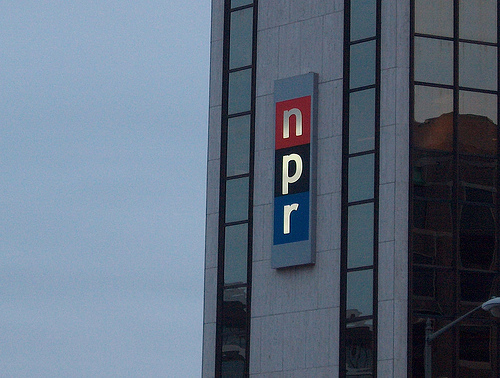
NPR has announced that it is disabling users' ability to comment on articles published the site and will instead use social media as their hub for online discussion. This change, slated to take place on August 23, was described by Scott Montgomery, NPR’s Managing Editor for Digital News:
The NPR.org audience has grown dramatically in recent years, to between 25 and 35 million unique visitors each month. But far less than 1% of that audience is commenting, and the number of regular comment participants is even smaller. Only 2,600 people have posted at least one comment in each of the last three months –– 0.003% of the 79.8 million NPR.org users who visited the site during that period.
Later blog posts by NPR elaborated on this decision, citing the increasing costs of keeping their comments section:
NPR's commenting system — which gets more expensive the more comments that are posted, and in some months has cost NPR twice what was budgeted — is serving a very, very small slice of its overall audience.
On this basis, it is understandable why NPR chose to abandon online comments. But as more publications use social media for discussion and response to their articles, the content restrictions which those social media sites impose become increasingly relevant.
Further complicating the matter is the lack of legal obligation these services may have to 1st Amendment rights. As private institutions, Twitter and Facebook currently enjoy absolute authority in terms of what is acceptable to say on their sites. Their opinion of what qualifies as hate speech and what is political opinion is the only judgement criteria used for content moderation because, after all, no one is forced to use social media.
But is that really still the case? As major social media platforms become increasingly less voluntary and more mandatory, so too do their content limitations, which many oppose. Even platforms with strong free speech roots like Reddit have struggled with major comment removal controversies as of late, raising concern over what “objectionable” means to those managing services which have become all but essential daily life.
This topic, “How free should social media be?” is the central theme of NCAC’s Youth Free Expression Film Contest; NCAC has encouraged the production of student films which explore the complexities of this generational redefining of free speech and we look forward to reviewing these entries as they come in. Consider applying, a scholarship to the New York Film Academy is up for grabs.

